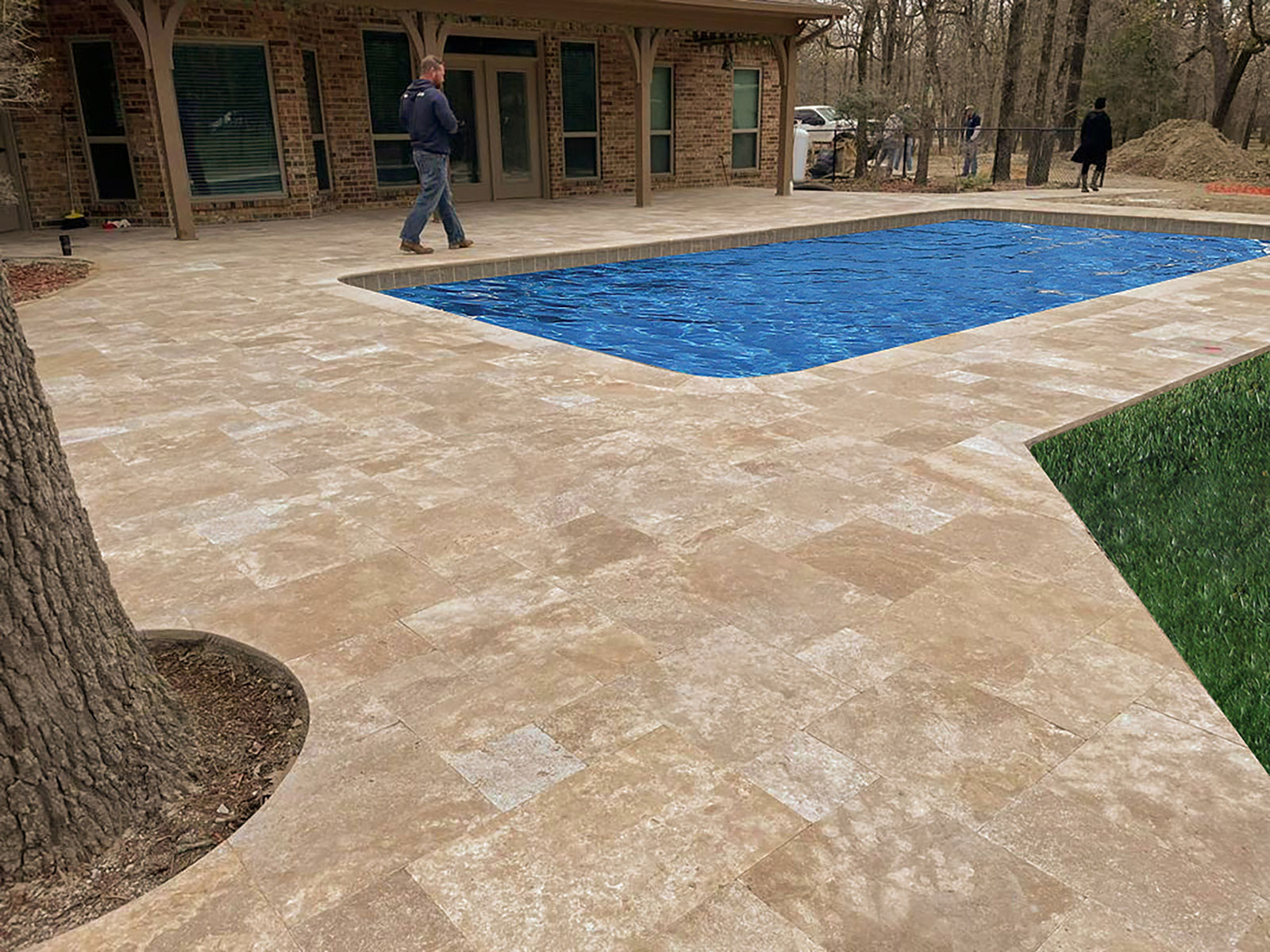Travertine is known for its timeless beauty and natural durability, but like any natural stone, it can begin to deteriorate if not properly cared for. If your travertine pavers are crumbling, flaking, or breaking down over time, there are a few common reasons behind it — most of which are preventable with the right maintenance and installation practices.
1. Moisture Penetration and Freeze-Thaw Damage
Travertine is a porous stone, meaning it naturally absorbs moisture. When water seeps into the stone and freezes (especially in colder climates), it expands and causes the stone to crack or crumble.
Solution: Apply a high-quality penetrating sealer every 1–2 years to reduce moisture absorption. Make sure your pavers are properly drained so that water doesn’t pool on the surface.
2. Improper Installation or Base Preparation
If the base beneath your pavers wasn’t compacted or leveled correctly, uneven settling can put pressure on certain pavers, leading to cracking and crumbling over time.
Solution: Ensure the base consists of compacted crushed stone and sand with proper drainage. Always hire experienced installers familiar with natural stone pavers, not just concrete.
3. Use of Harsh Cleaners or Acidic Products
Travertine reacts negatively to acidic substances like vinegar, bleach, or acidic cleaners — they can etch and weaken the stone, making it more prone to crumbling.
Solution: Only use pH-neutral stone cleaners designed for travertine. Avoid pressure washing with strong detergents or chemicals.
4. Lack of Sealing and Maintenance
Over time, unsealed travertine can absorb dirt, water, and salts, leading to internal damage that makes the stone brittle.
Solution: Regularly clean and reseal your pavers. For outdoor applications, sealing once a year (especially in high-traffic or pool areas) helps preserve the integrity and color of the stone.
5. Use of De-Icing Salts or Harsh Weather Exposure
In colder regions, salt used for de-icing can penetrate travertine and cause surface flaking or “spalling.” Extended exposure to extreme heat and cold can also wear down the stone.
Solution: Use alternative ice-melting products like sand or calcium magnesium acetate, which are less corrosive to natural stone.
6. Natural Aging and Low-Quality Stone
Not all travertine is created equal. Lower-grade travertine with excessive voids or poor density tends to break down faster, especially outdoors.
Solution: When purchasing, choose premium-grade or commercial-grade travertine pavers. Reputable suppliers provide dense, properly filled stone that stands up to outdoor conditions.
Final Thoughts – Why is my travertine pavers crumbling?
Crumbling travertine isn’t just an aesthetic issue — it’s a sign that your stone needs attention. With proper installation, sealing, and maintenance, travertine pavers can last decades without major problems.
If your pavers are already showing signs of deterioration, consider professional cleaning, resealing, or replacing the damaged pieces before the problem spreads.

